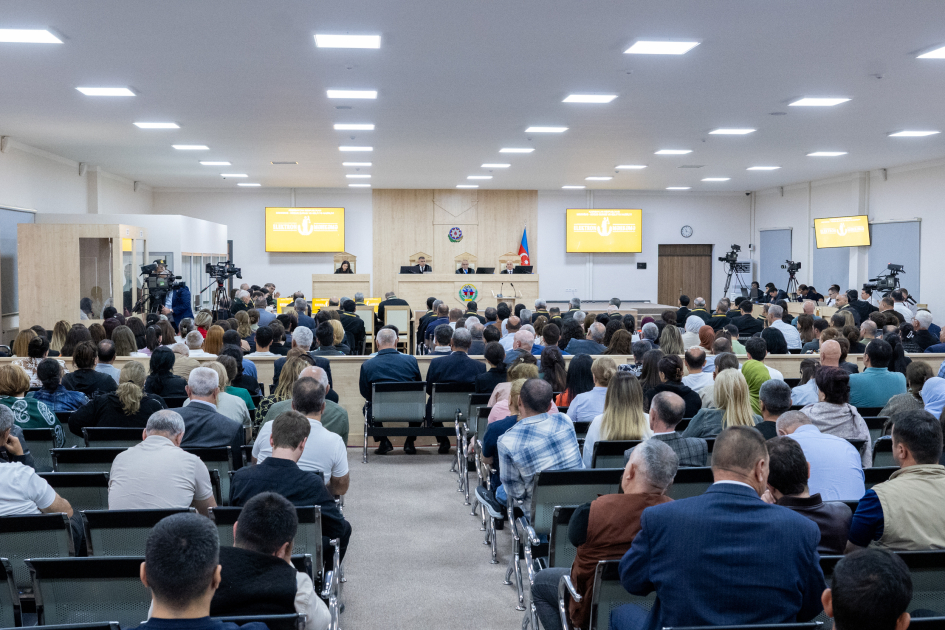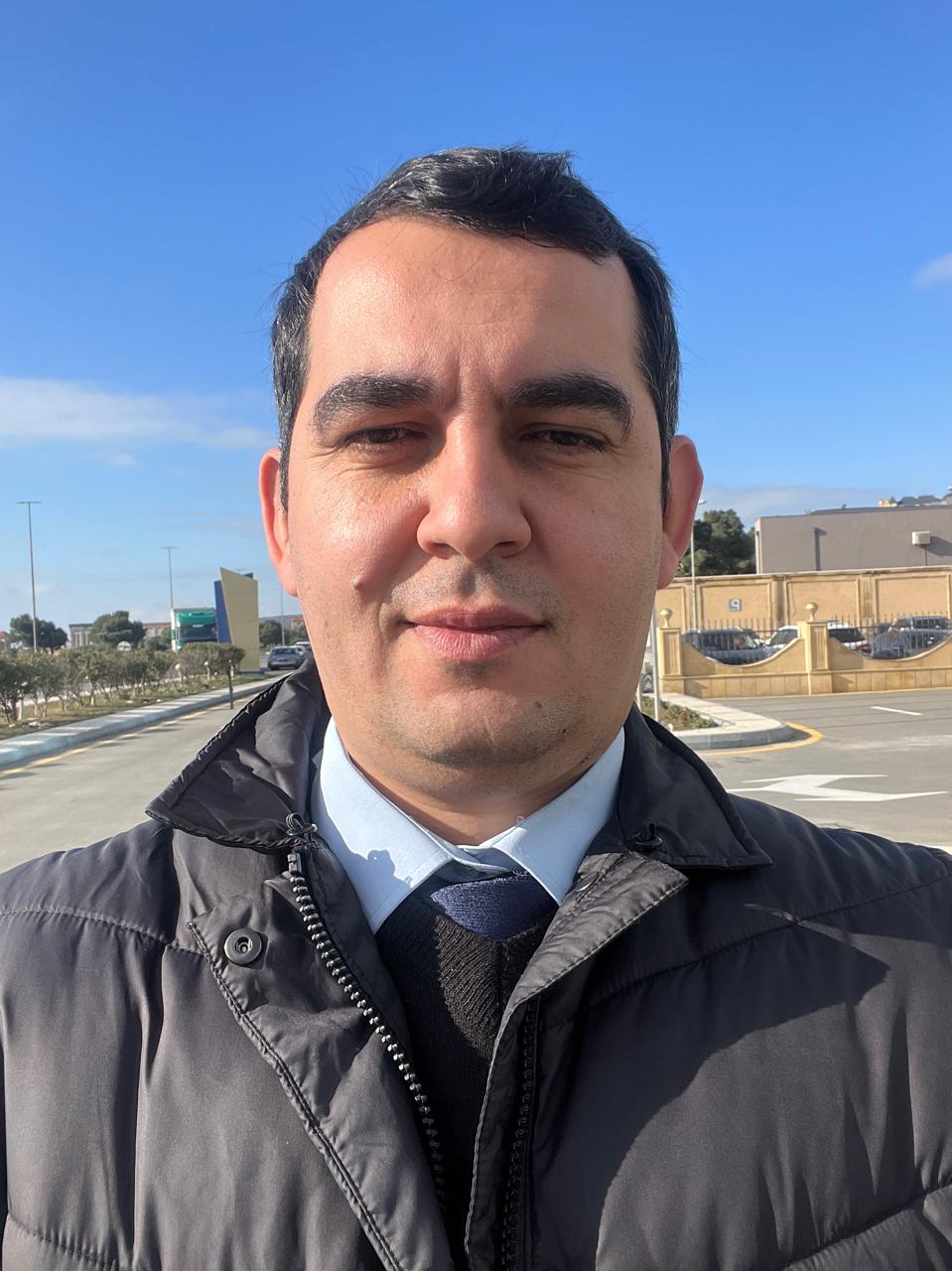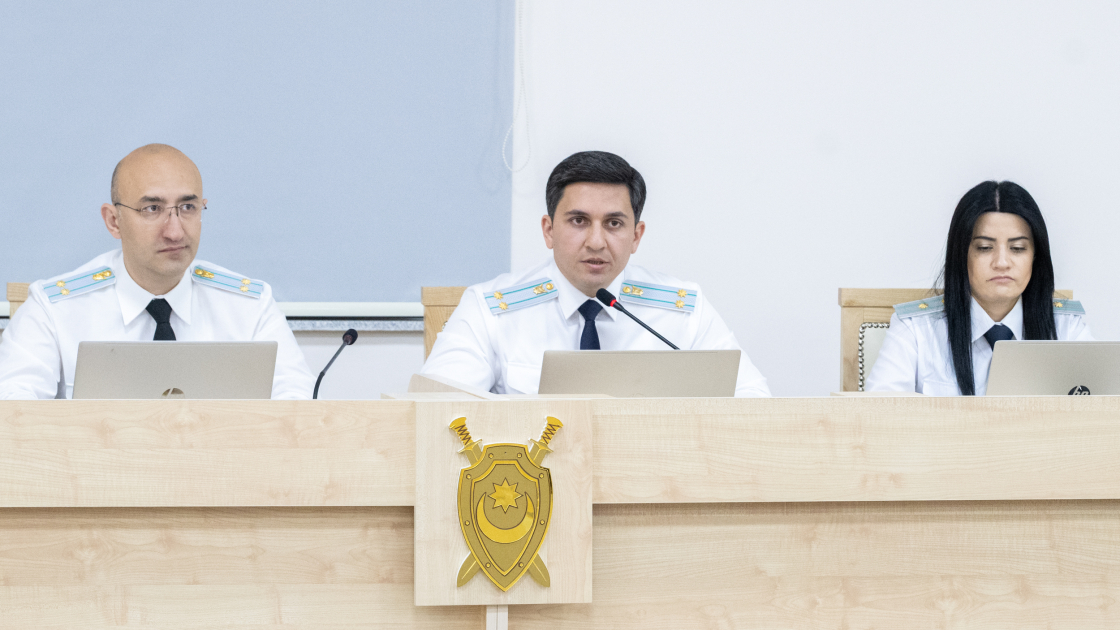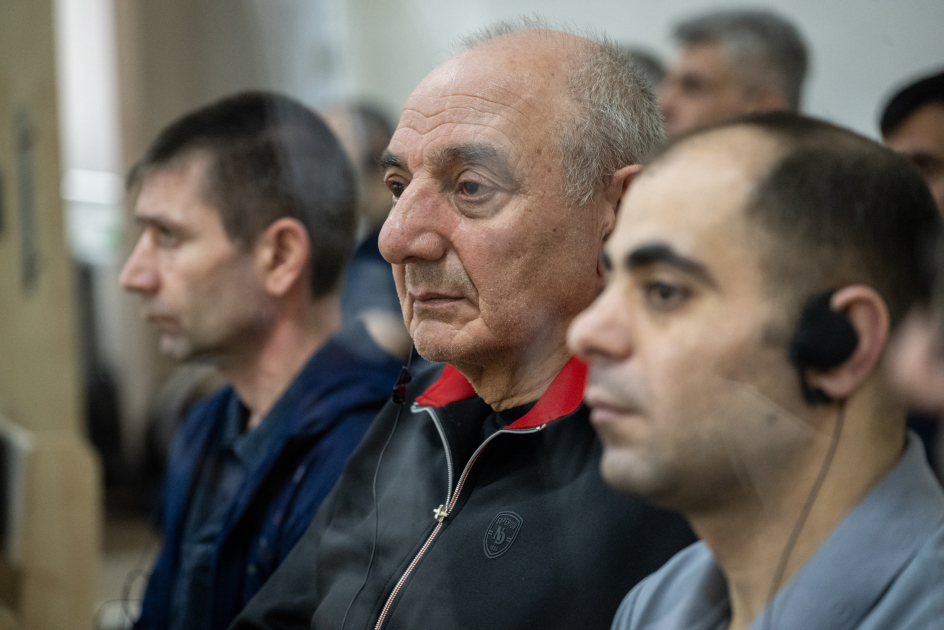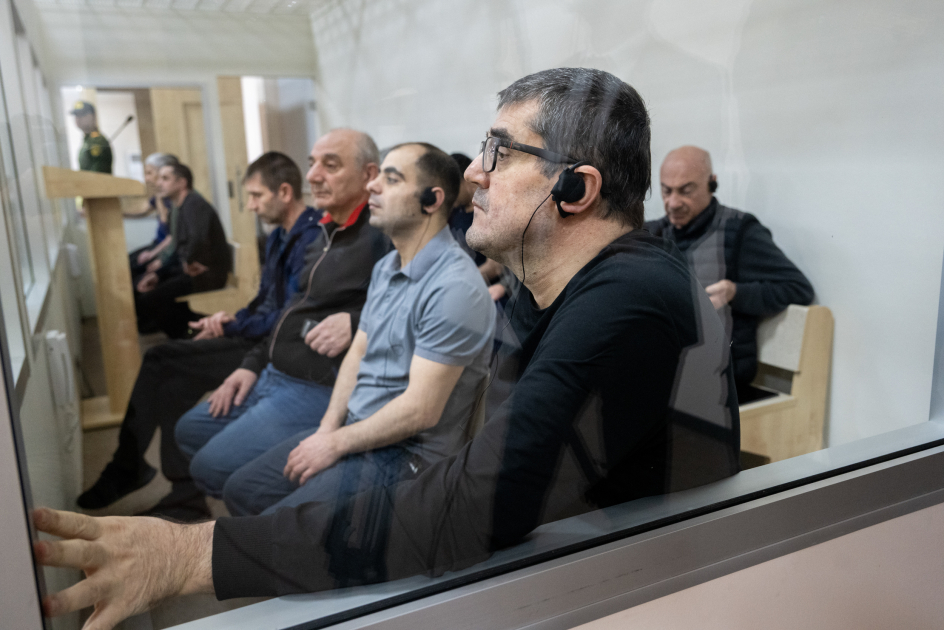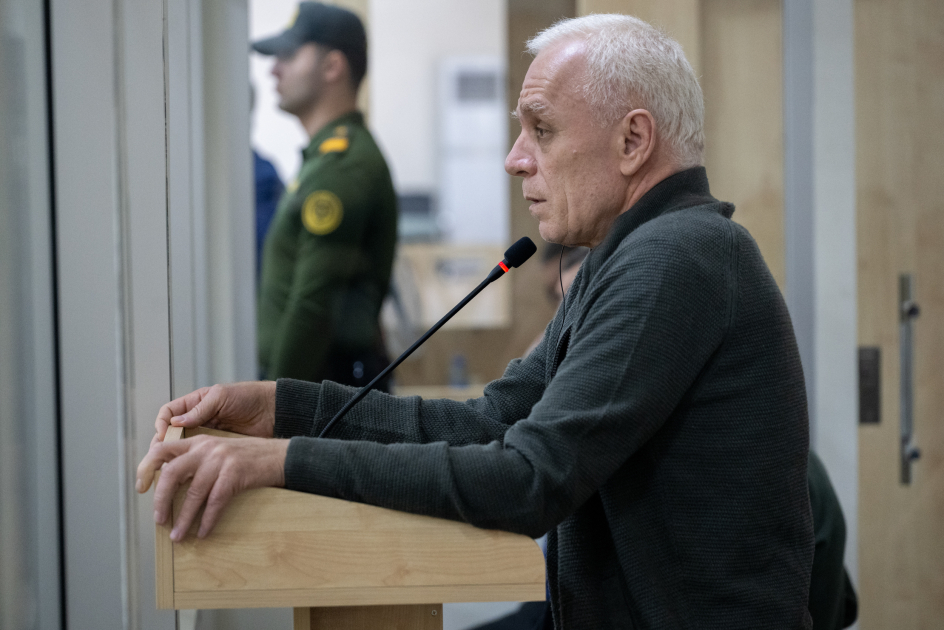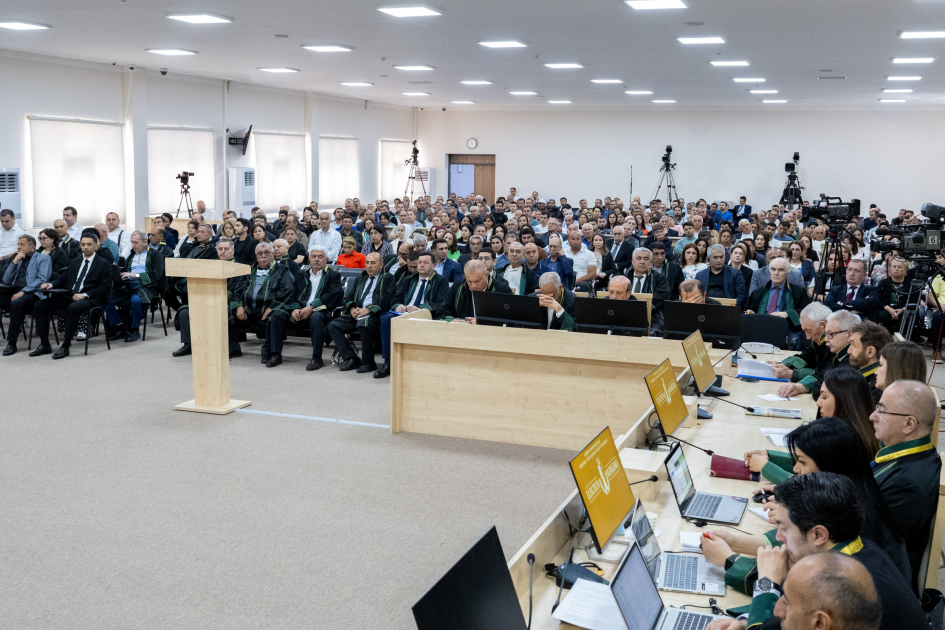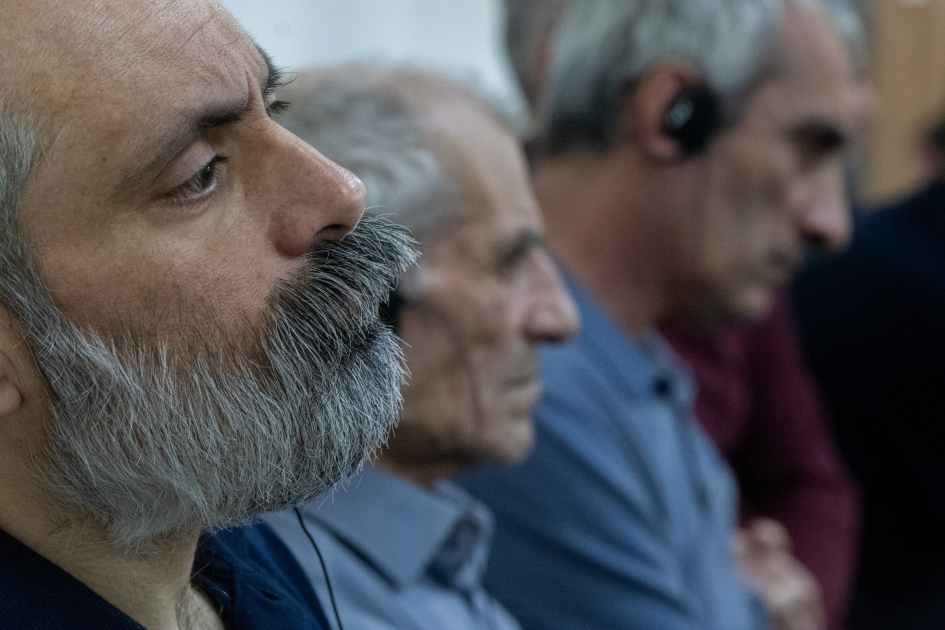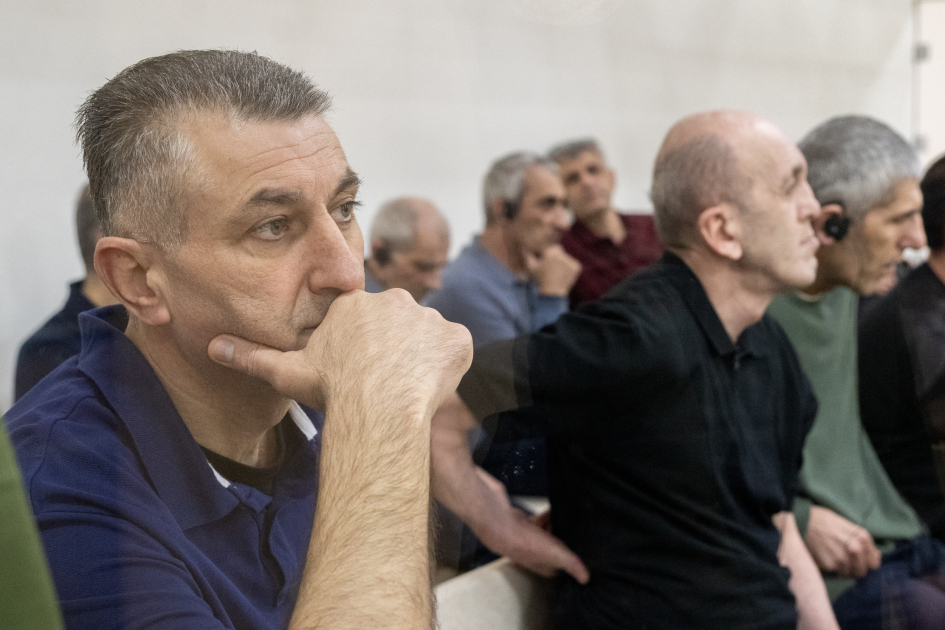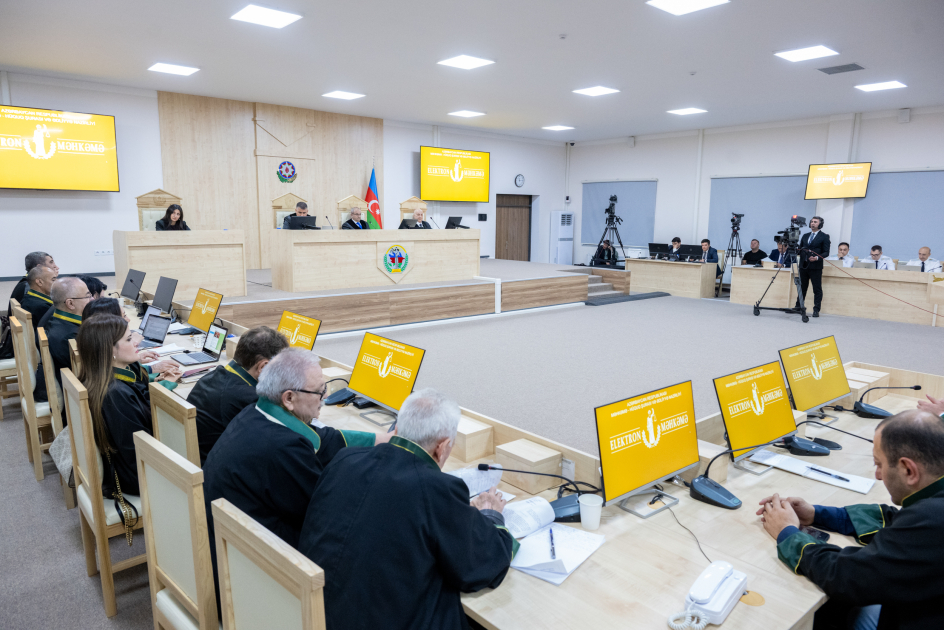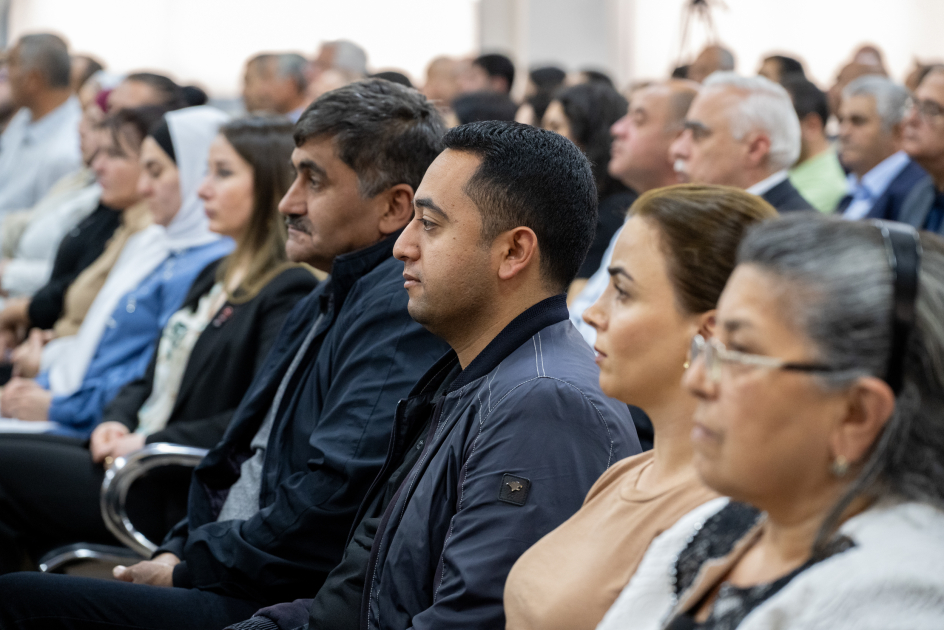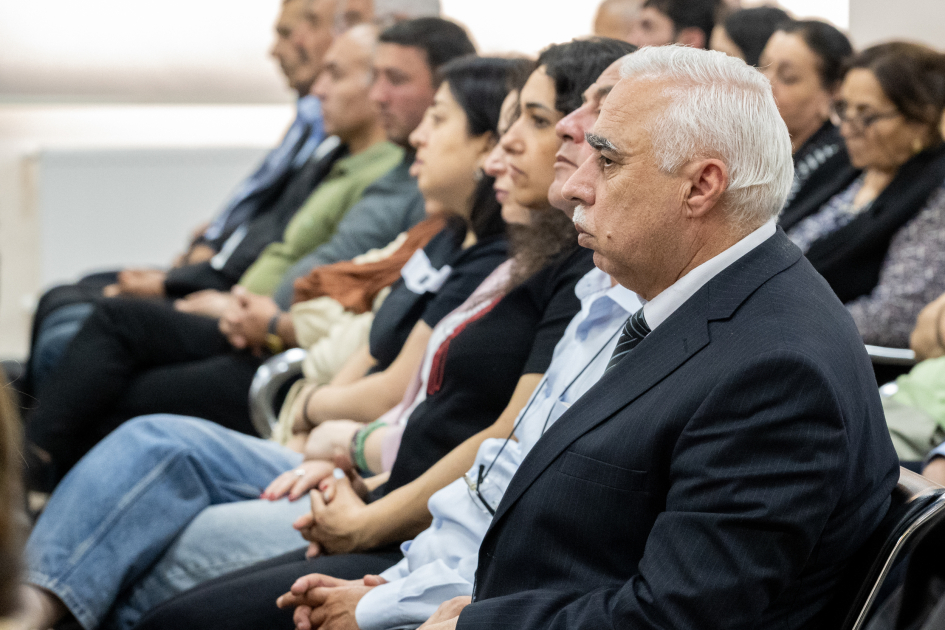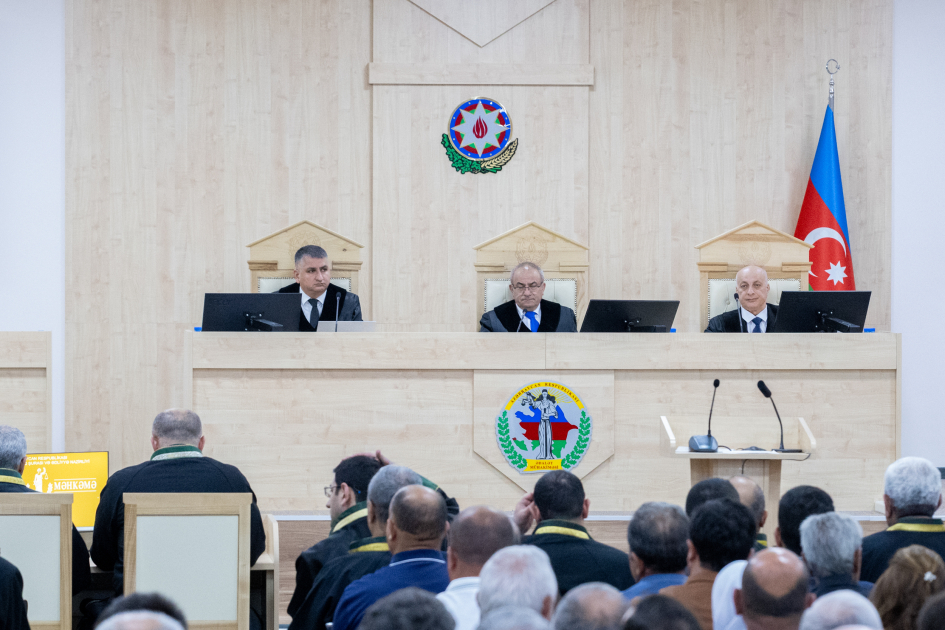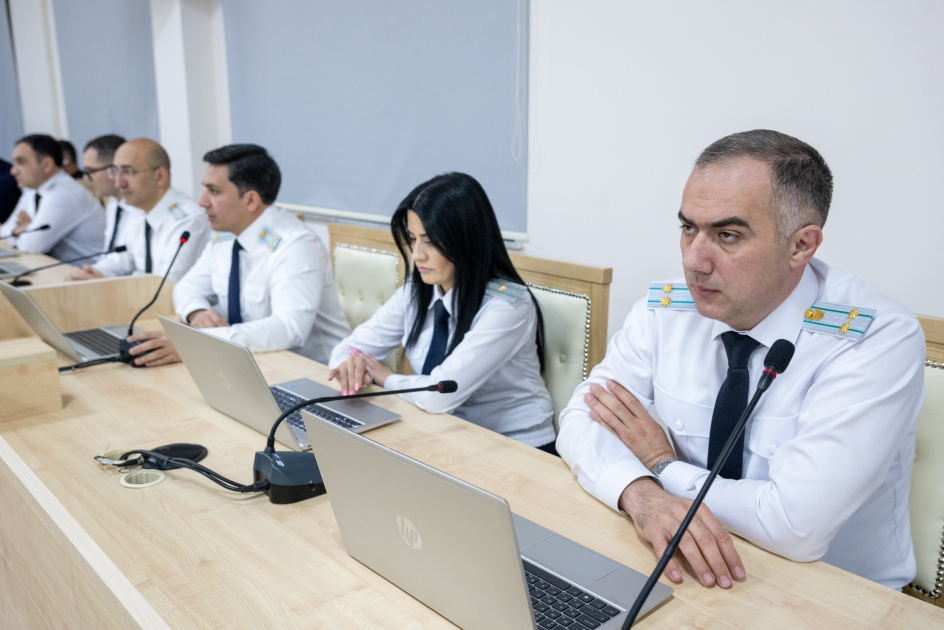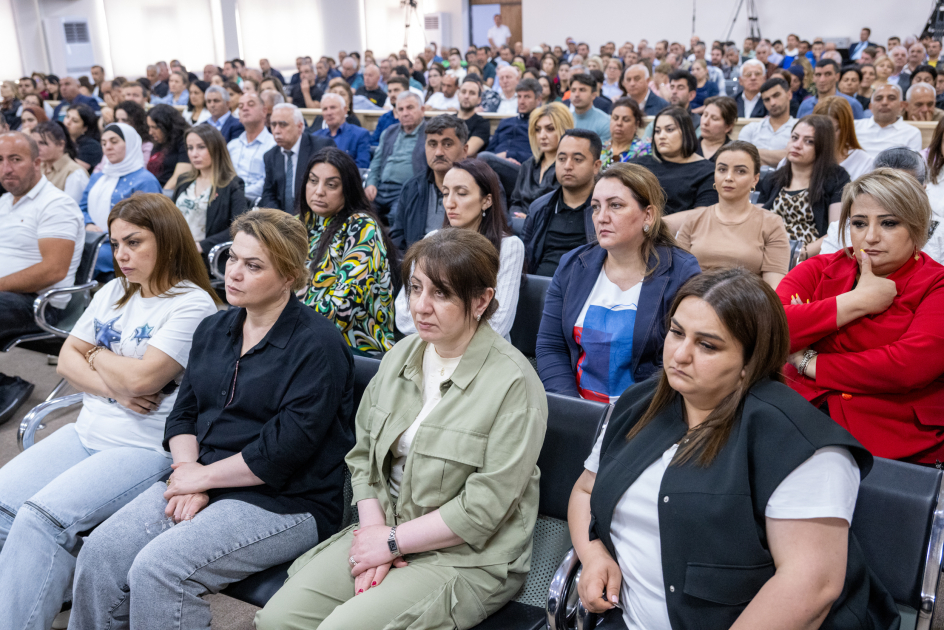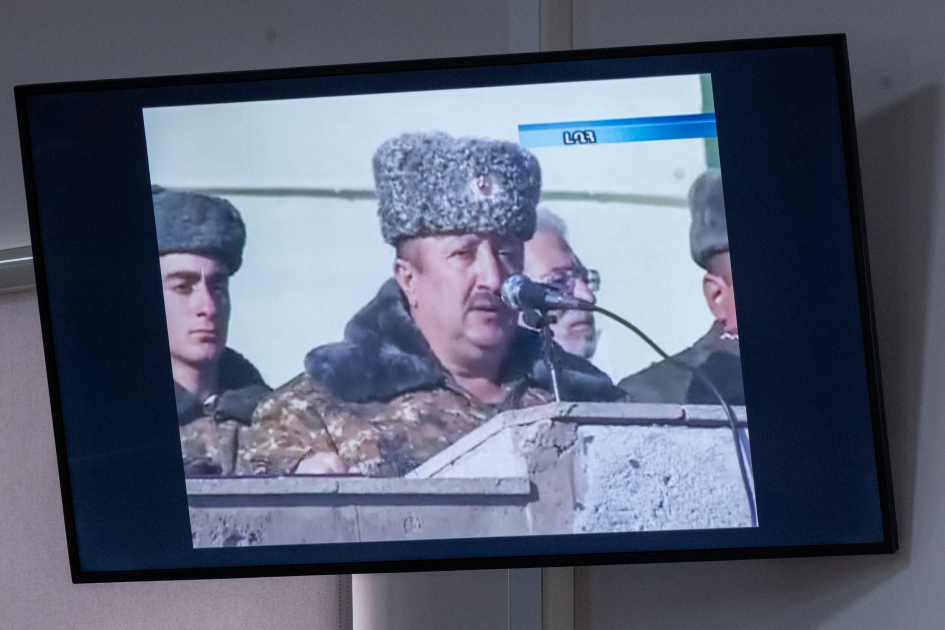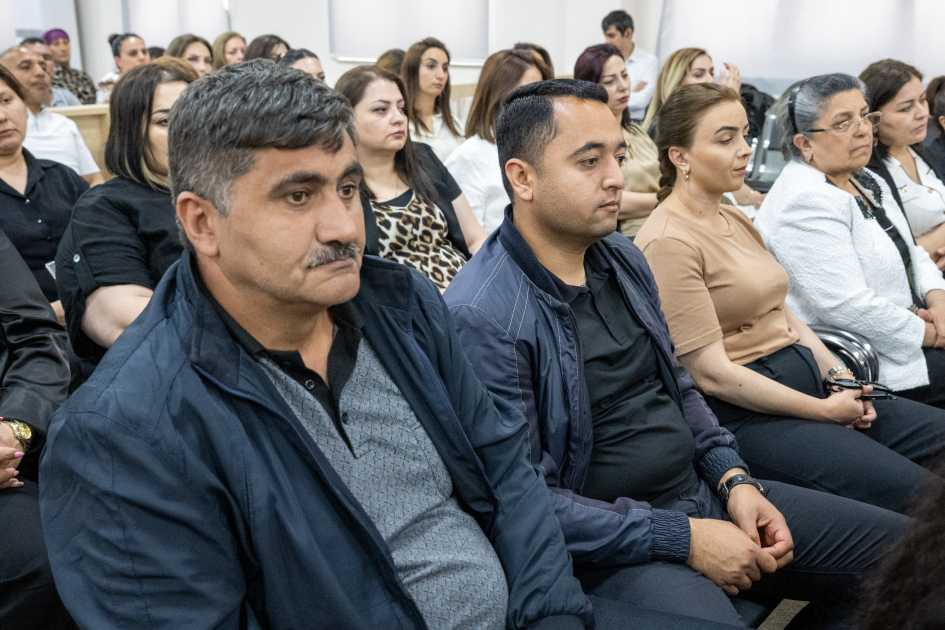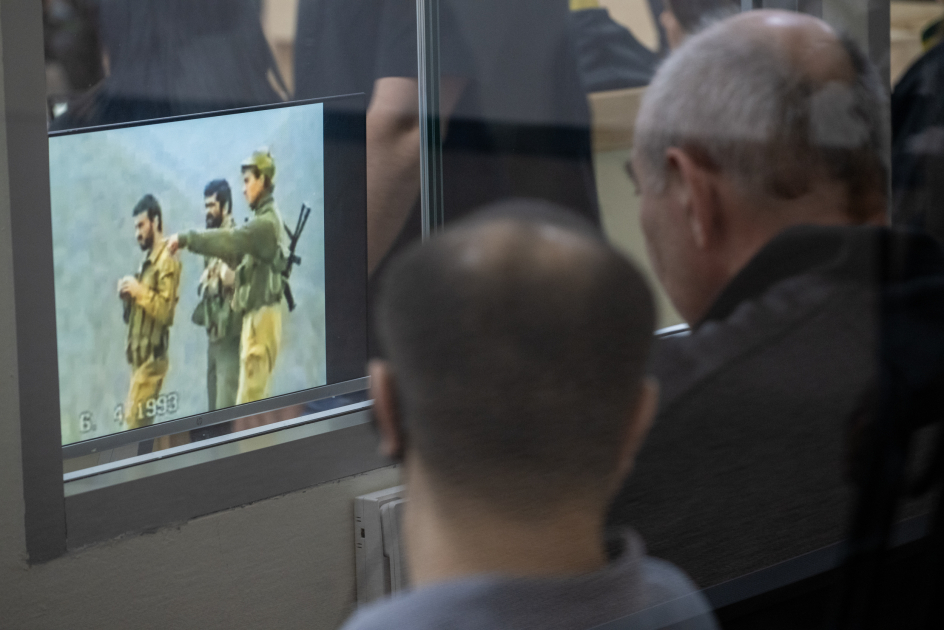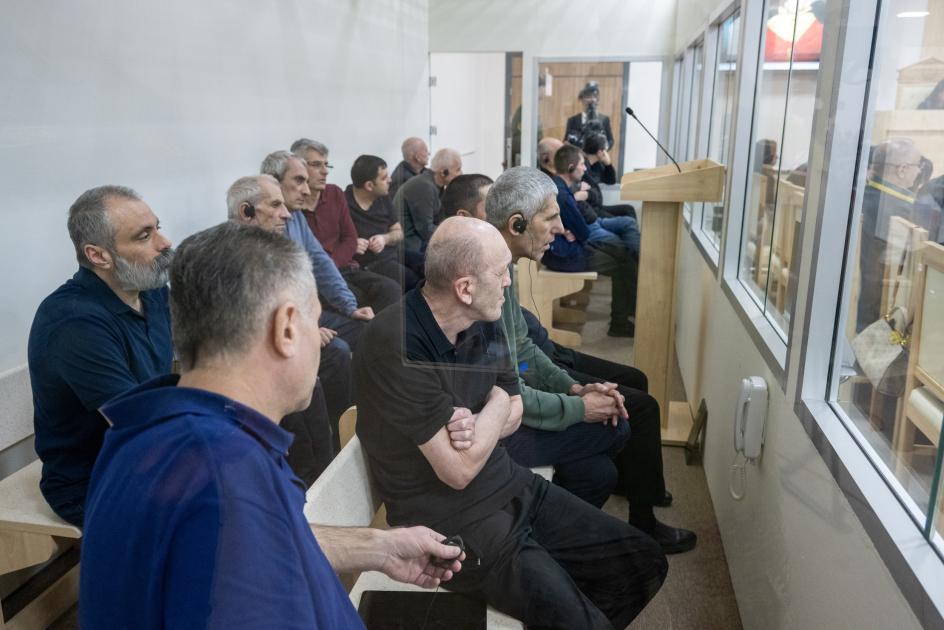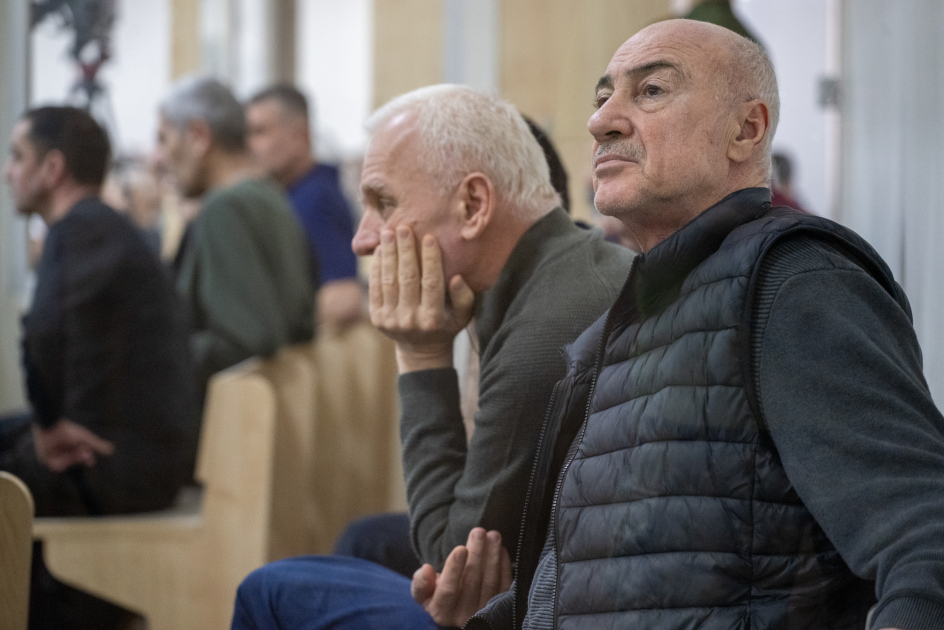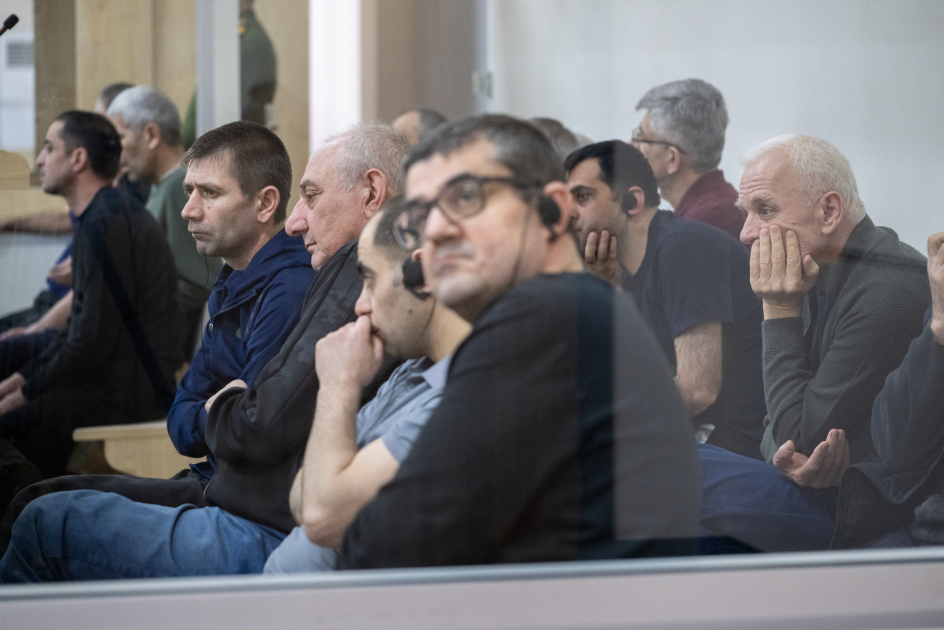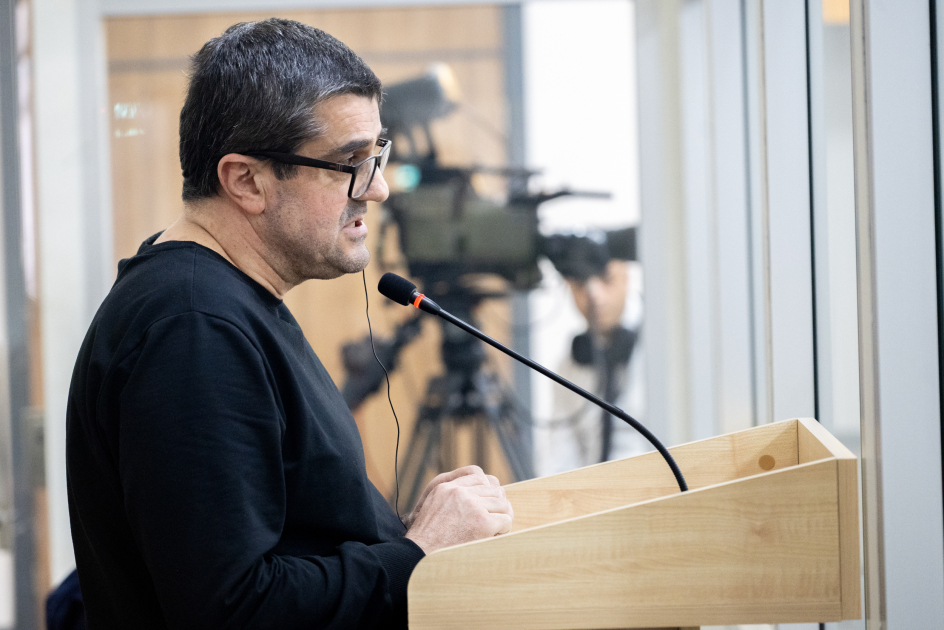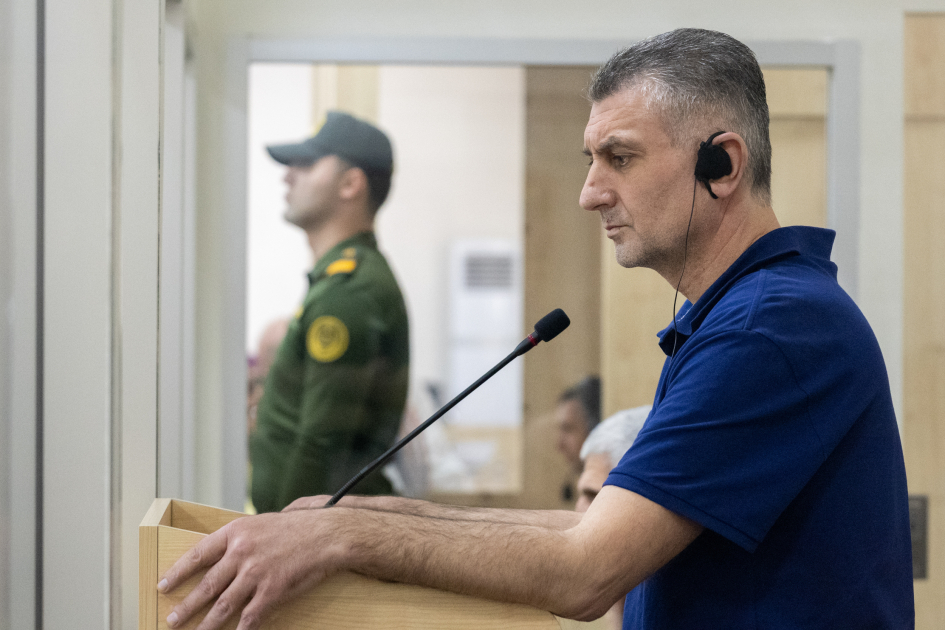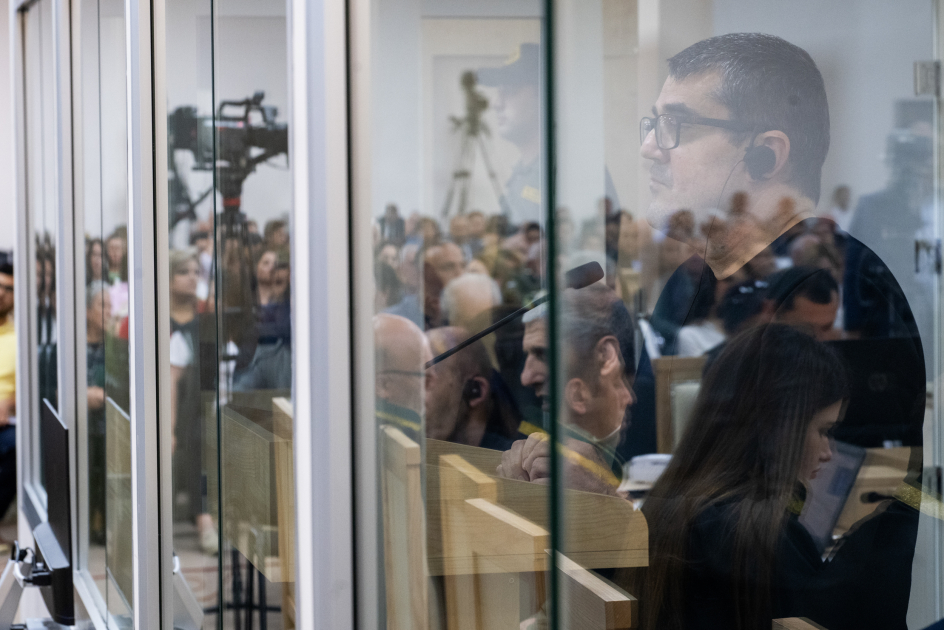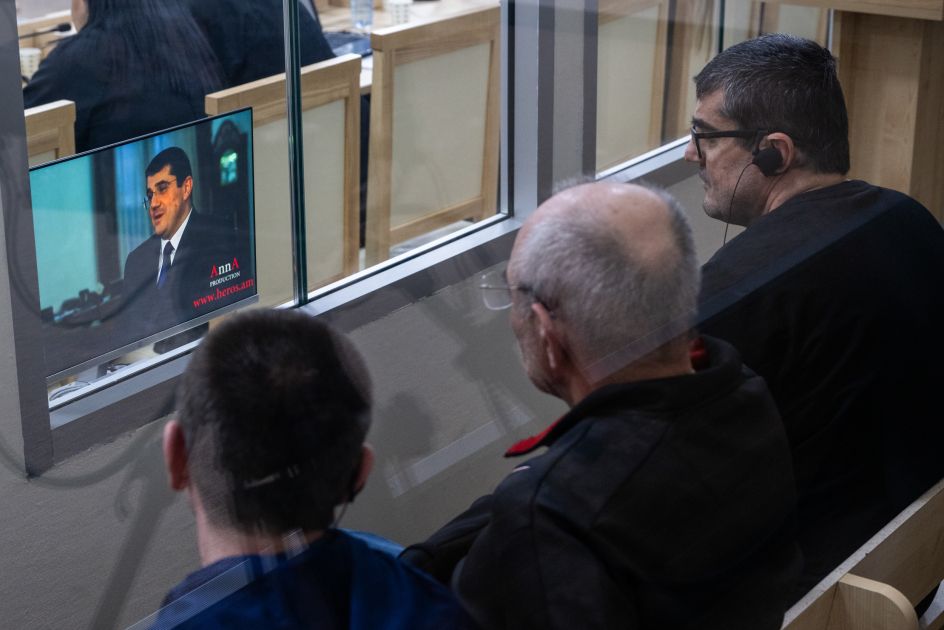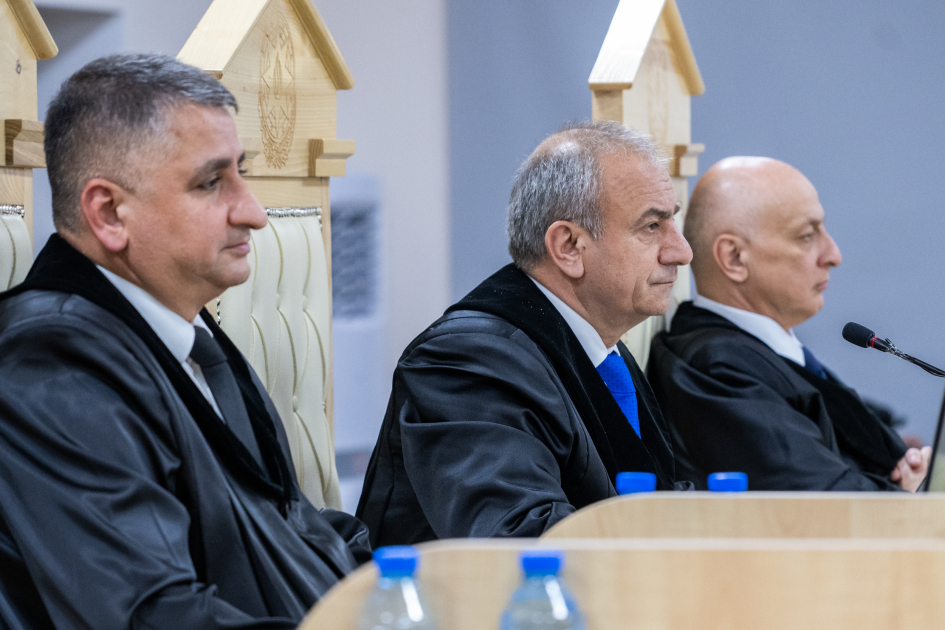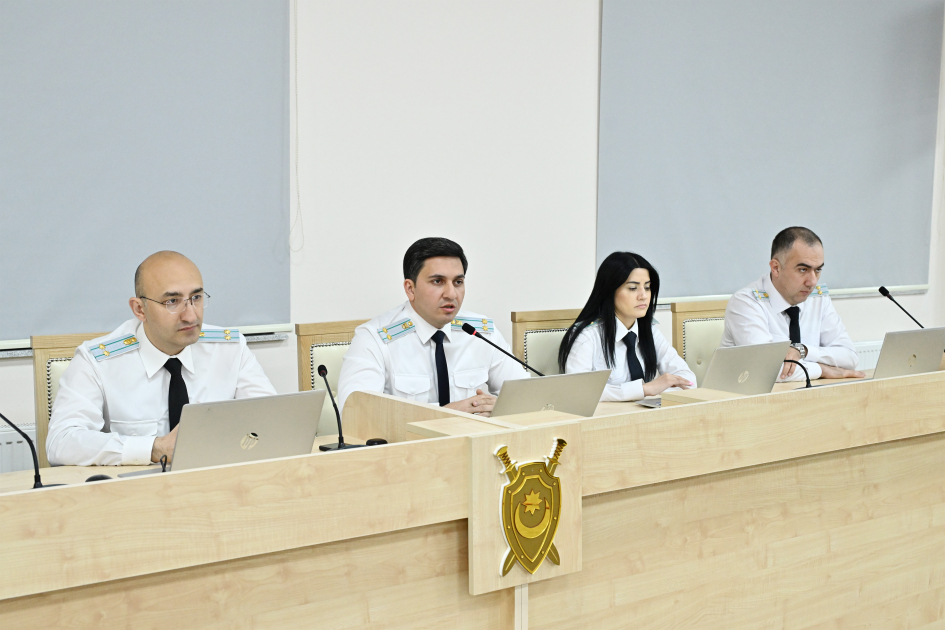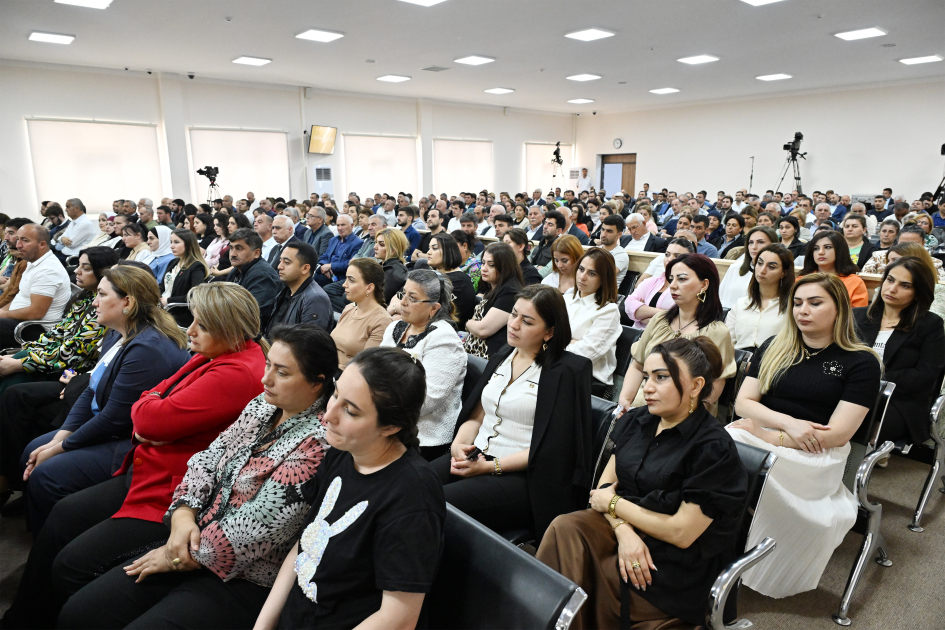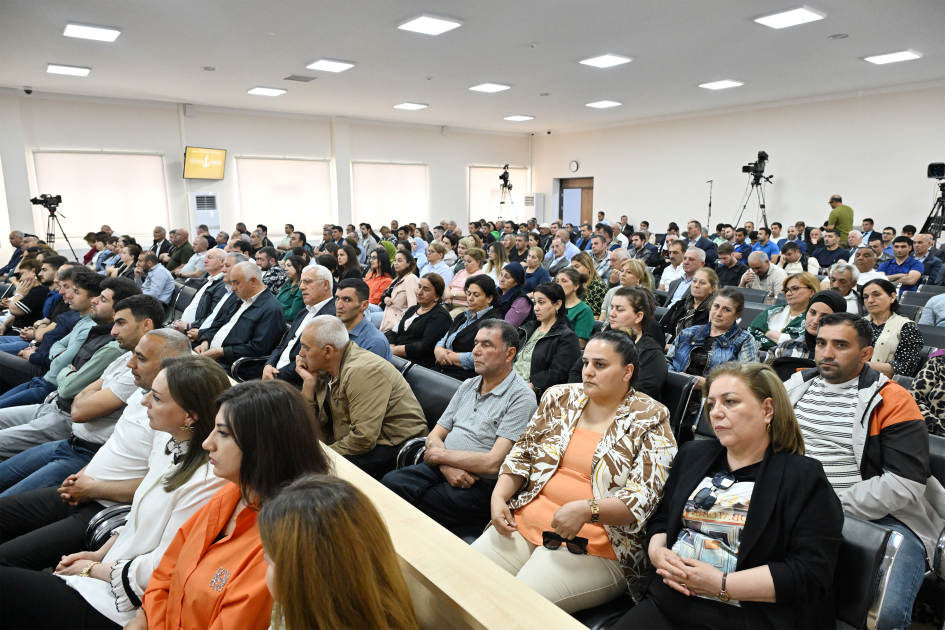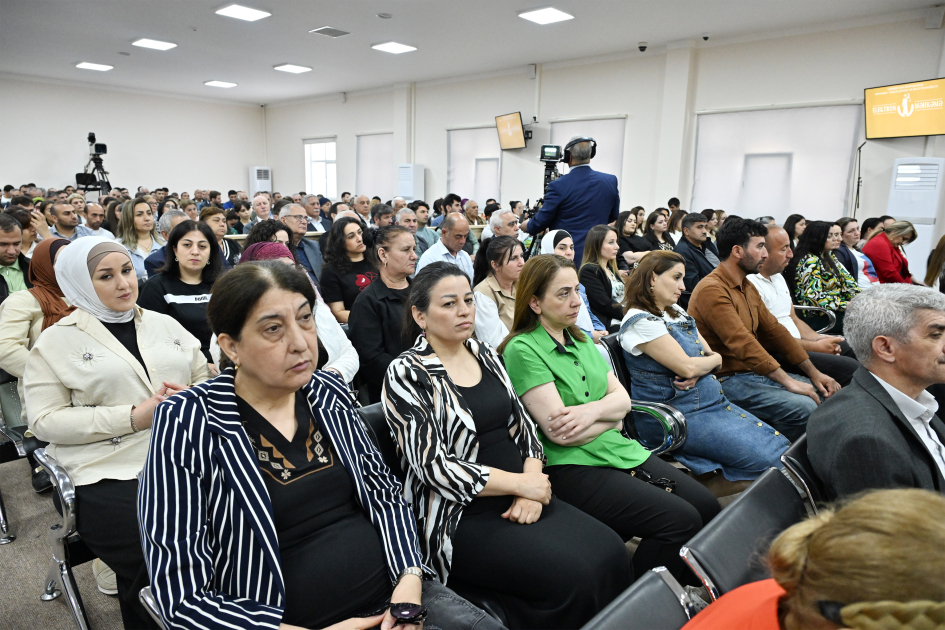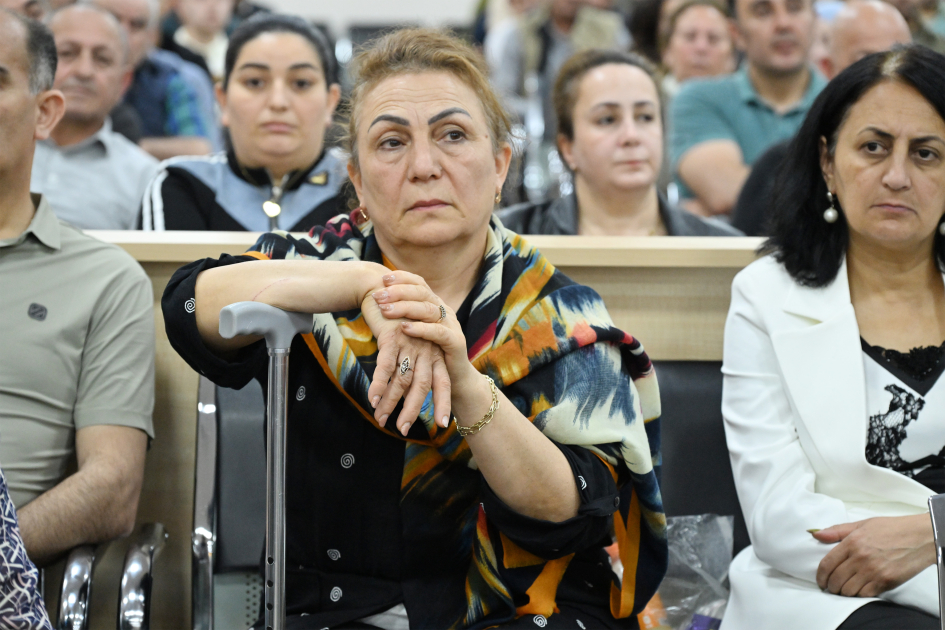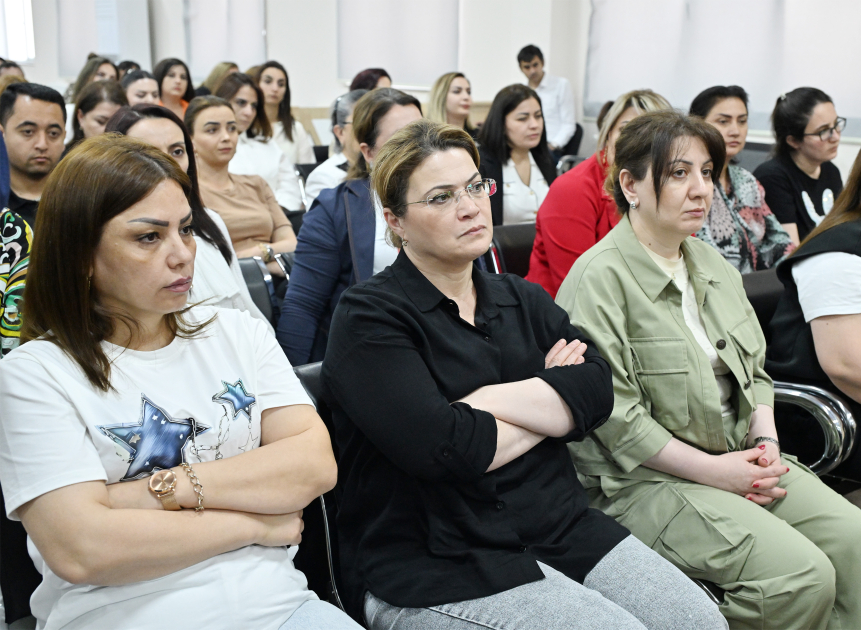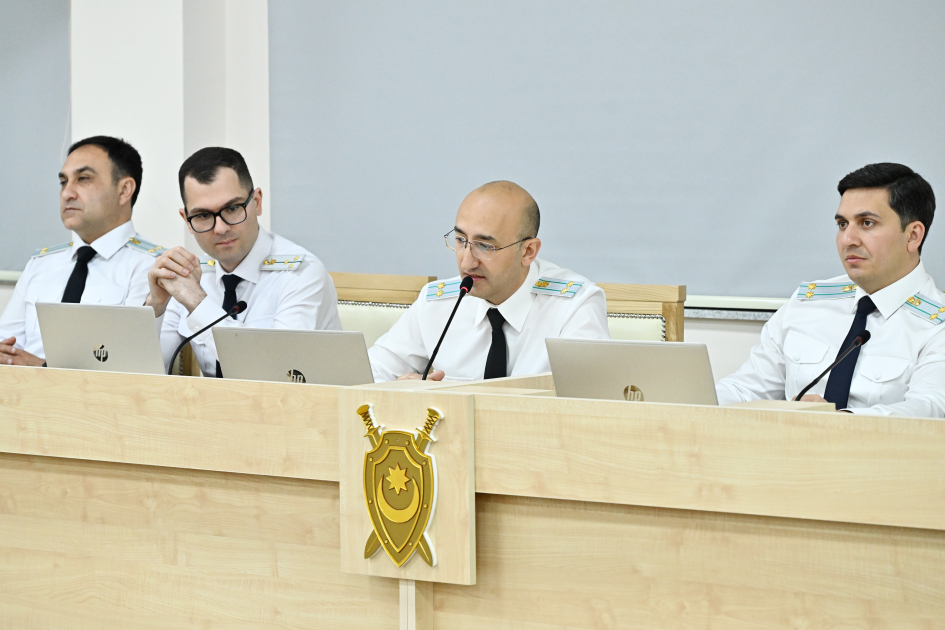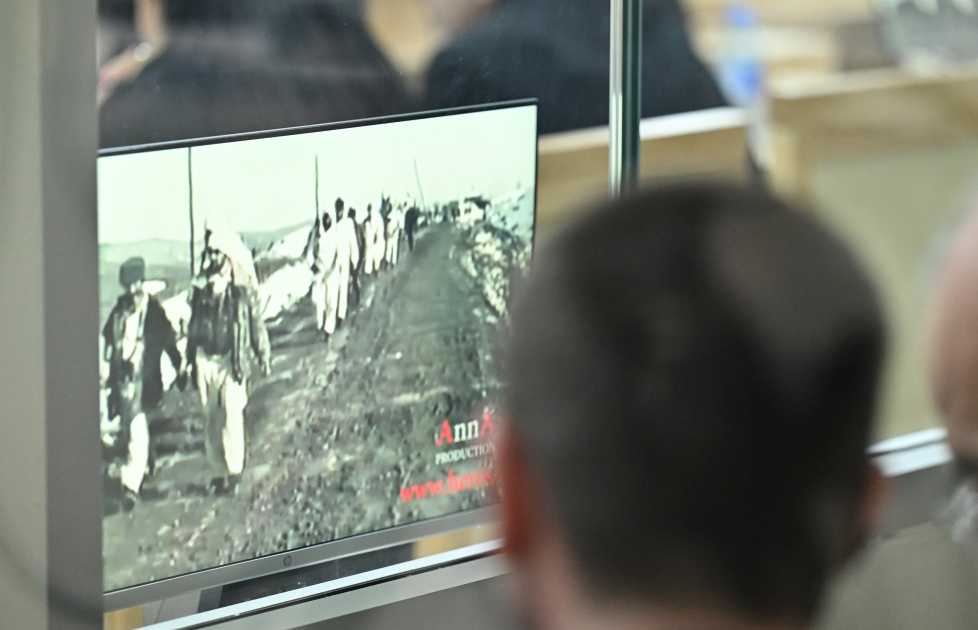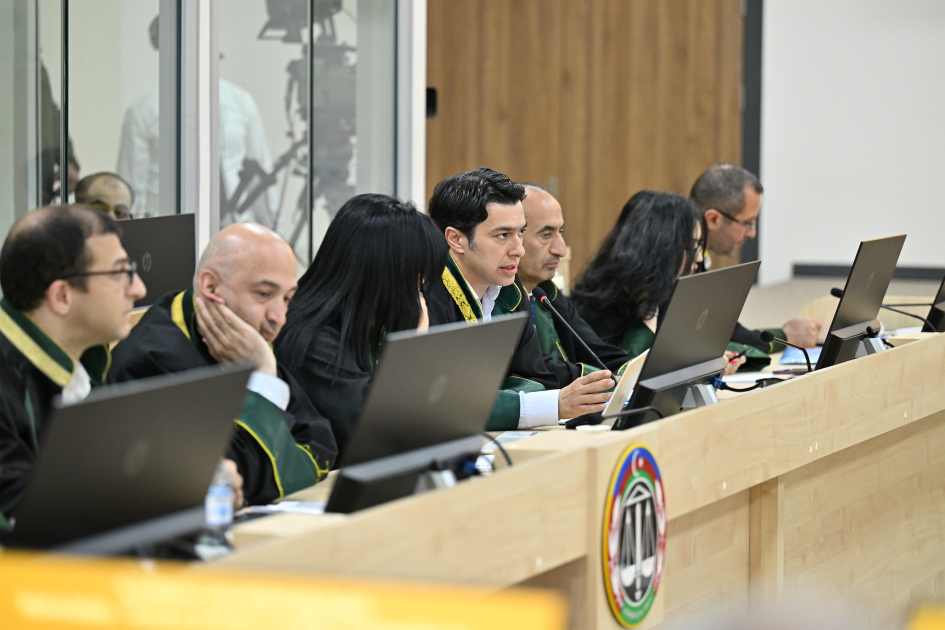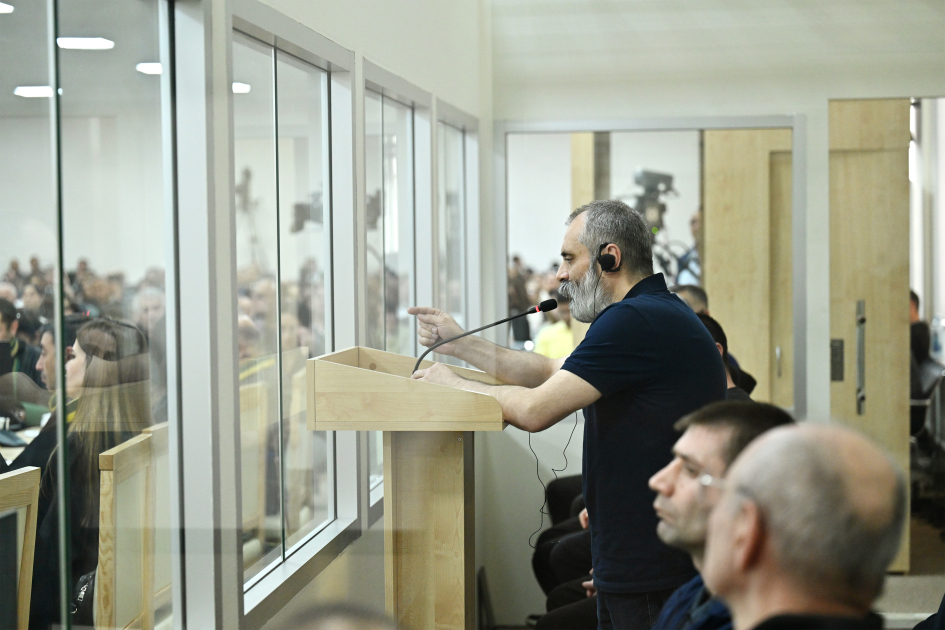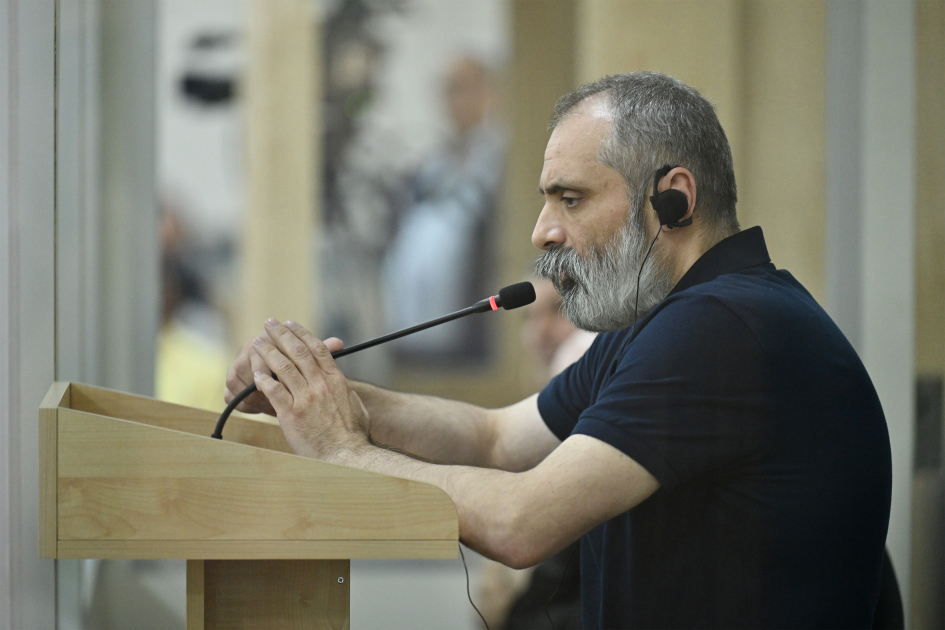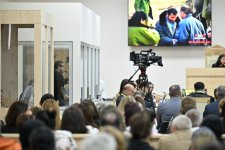BAKU, Azerbaijan, May 23. The open court session continued on May 23 at the Baku Military Court in the criminal case against Armenian citizens Arayik Harutyunyan, Arkadi Ghukasyan, Bako Sahakyan, Davit Ishkhanyan, David Babayan, Levon Mnatsakanyan, and others. They stand accused of crimes against peace and humanity, including war crimes, preparing and waging aggressive war, genocide, violations of the laws and customs of war, terrorism, financing terrorism, forcible seizure and retention of power, and other grave offenses arising from Armenia’s military aggression against Azerbaijan, Trend reports.
Presided over by Judge Zeynal Aghayev, with Judges Jamal Ramazanov and Anar Rzayev (alternate judge Gunel Samadova), the court ensured that each defendant had legal representation and interpretation in their native language.
The session was attended by the accused, their lawyers, some victims and their legal successors, as well as state prosecutors.
Defendant Levon Mnatsakanyan confirmed his involvement in the occupation of Azerbaijan’s sovereign territories. Mnatsakanyan stated that he had served for many years as a “battalion commander”, “division commander”, and “artillery chief” in the separatist entity.
In response to questions from state prosecutor Fuad Musayev, the defendant admitted that he participated in the occupation of Azerbaijani territories as part of a military unit led by Samvel Karapetyan. “I engaged in combat operations in Aghdam, Jabrayil, Aghdara, Fuzuli, and other areas,” he said.
During the session, video evidence confirming the involvement of foreign individuals in the occupation of Azerbaijani territories as part of the “Shusha Separate Battalion” was examined.
According to the footage, the “Shusha Separate Battalion” - comprising over 210 dashnaks and volunteers from the United States, Canada, Syria, and Armenia—was established on November 5, 1991.
The materials also confirmed that 65 out of 100 members of the Armenian diaspora who participated in the so-called “liberation of Karabakh” were members of this battalion. The video footage features a soldier of the occupying Armenian army putting flowers at the monument to Petros Ghevondyan.
According to the footage, Jirayr Sefilyan was born in Beirut in 1967. He returned to his homeland in 1990 to join the “struggle”. As a military instructor, he also involved in the formation of “local self-defense groups” in various regions of Armenia since 1990. In 1991, as a group commander, he was also involved in the “defense” of settlements in several regions of Karabakh.
“In 1992, one of the first units was established in Karabakh on the basis of the “Dashnaktsutyun” combat groups, and a few months later, the “Shusha Separate Battalion” of the “army” of the former so-called regime was formed on its basis. Throughout the war, Jirayr Sefilyan was the commander of this military unit. Under his leadership, the units of that military unit participated in the occupation of all regions of Karabakh, including Aghdam.
The footage also shows that 65 out of 100 members of the Armenian diaspora who participated in the so-called “liberation of Karabakh” were members of this battalion. Following the war, J. Sefilyan was the commander of the 6th defense district from 1997 to 1998. He was honored with the 1st degree “Battle Cross” medal (of the Republic of Armenia - ed.), other combat medals and state awards. He holds the rank of lieutenant colonel in the armed forces of Armenia.
According to the footage, Movses Hakobyan (who served as the Chief of the General Staff of the Armed Forces of the Republic of Armenia in 2016-2018 - ed.) highlighted the operations of their military units, saying that they participated in battles, especially in the Horadiz direction: “The officers serving today can see on the map that we have advanced deep into the enemy in the direction of Garakhanbayli. The battalion involved in the operations in Asgaran, Shusha, Khojavand, Aghdara, Aghdam, Fuzuli, Gubadli, Jabrayil, Kalbajar and Zangilan.”
David Ishkhanyan is also captured in the footage.
Defendant David Manukyan, identifying himself in the video, acknowledged his participation in the Aghdara and Kalbajar operations.
In response to a question from Senior Assistant to the Prosecutor General Vusal Aliyev, Manukyan stressed that the battalion did not include mercenaries but rather foreign individuals.
Defendant David Manukyan, who responded to the questions by examining the video materials, once again confirmed that the person in the presented scenes was him, stating that he was involved in the combat operations conducted in Aghdara and Kalbajar as part of the Shusha battalion.
The accused avoided answering questions about the plundering of Azerbaijani territories during the occupation.
In responding to the questions from public prosecutor Vusal Abdullayev, “In what operations did you participate in 1993-1994?,” accused Arayik Harutyunyan underscored that he did not involve in the combat operations because he could not open fire due to his health issues. “I was the one in charge of the weapons depot of the central defense district of the 8th regiment located in Khankendi. The 8th regiment involved in almost all combat operations - in the battles of Shusha, Lachin, Aghdara, Aghdam, Jabrayil, Fuzuli, Kalbajar, Horadiz. My brother was also one of the commanders of that regiment. The commander of the regiment was Samvel Karapetyan. I have known him since January 1993,” he added.
Then, a video footage was shown, followed by questions to Arayik Harutyunyan.
According to the footage, A. Harutyunyan, who gave an interview to the journalist, highlighted the procedure for conducting combat operations and his first meeting with Samvel Karapetyan, saying: “My first meeting with my next commander (Samvel Karapetyan - ed.) was on May 7, 1992. At that time, we were planning an operation to enter Shusha on May 9. Everything ended successfully, we liberated Shusha.”
One scene featured the defendant sitting on the tank along with Samvel Karapetyan, and observing the area through binoculars.
Responding to the questions from state prosecutor Tarana Mammadova, A. Harutyunyan rejected the things he said in a video calling it a lie, adding that he was speaking on behalf of his brother.
Commenting on his remarks in the video regarding the seizing of the Gulluja village the defendant said: “When I said we have entered the Gulluja village, I meant the 8th regiment.”
The defendant also identified himself on most of the photos demonstrated in court, featuring him wearing the military uniform.
Tugay Rahimli, Assistant to the Prosecutor General for Special Assignments, asked the defendant what was the reason behind not implementing the UN-adopted resolutions.
Harutyunyan responded by saying: “There was a decision concerning this matter. However, I know nothing on why it was not implemented. I have also met with Levon Ter-Petrosyan, and have understood that there was no unanimity on this issue.”
Responding to the questions from state prosecutor Vusal Abdullayev, the defendant confirmed his participation at one of the two meetings held between Armenia and the so-called regime in 2018-2019: “I assumed the office as “president” in May of 2020. In June of that year I requested Armenian Prime Minister Nikol Pashinyan to convene a meeting. I wanted the negotiations with Azerbaijan to take place and the final agreement to be reached. This conversation also covered the four UN resolutions.”
While responding to the question from state prosecutor Vusal Aliyev regarding the looting of the former occupied Azerbaijani territories, Harutyunyan described the destruction of the Azerbaijani cemeteries as barbarism.
Defendant David Babayan avoided answering the questions from state prosecutors regarding who was the occupant forces mentioned in the UN Security Council resolutions.
One of Arkadi Ghukasyan’s defenders requested his substitution from court due to the health issues.
Ghukasyan raised no objections regarding the substitution of the defender. The court adopted the decision of appointing new defender for the defendant, and sent it to the Bar Association of the Republic of Azerbaijan regarding its implementation.
During the court hearing, the defendants also responded to the questions from the defenders, and representatives of the victims.
The next court hearing is scheduled for May 26.
The defendants — Arayik Vladimiri Harutyunyan, Arkadi Arshaviri Ghukasyan, Bako Sahaki Sahakyan, Davit Rubeni Ishkhanyan, David Azatini Manukyan, Davit Klimi Babayan, Levon Henrikovich Mnatsakanyan, Vasili Ivani Beglaryan, Erik Roberti Ghazaryan, Davit Nelsoni Allahverdiyan, Gurgen Homeri Stepanyan, Levon Romiki Balayan, Madat Arakelovich Babayan, Garik Grigori Martirosyan, and Melikset Vladimiri Pashayan — are charged under the following articles of the Criminal Code of the Republic of Azerbaijan: Article 100 (planning, preparing, initiating, and waging a war of aggression); Article 102 (attacking persons or organizations enjoying international protection); Article 103 (genocide); Article 105 (extermination of the population); Article 106 (enslavement); Article 107 (deportation or forced displacement of population); Article 109 (persecution); Article 110 (enforced disappearance of persons); Article 112 (deprivation of liberty contrary to international law); Article 113 (torture); Article 114 (mercenary service); Article 115 (violation of the laws and customs of warfare); Article 116 (violation of international humanitarian law during armed conflict); Article 118 (military robbery); Article 120 (intentional murder); Article 192 (illegal entrepreneurship); Article 214 (terrorism); Article 214-1 (financing terrorism); Article 218 (creation of a criminal organization); Article 228 (illegal acquisition, transfer, sale, storage, transportation, and possession of weapons, ammunition, explosives, and devices); Article 270-1 (acts threatening aviation security); Article 277 (assassination of a state official or public figure); Article 278 (forcible seizure and retention of power, forcible change of the constitutional structure of the state); Article 279 (creation of armed groups not provided for by law); and other articles.

